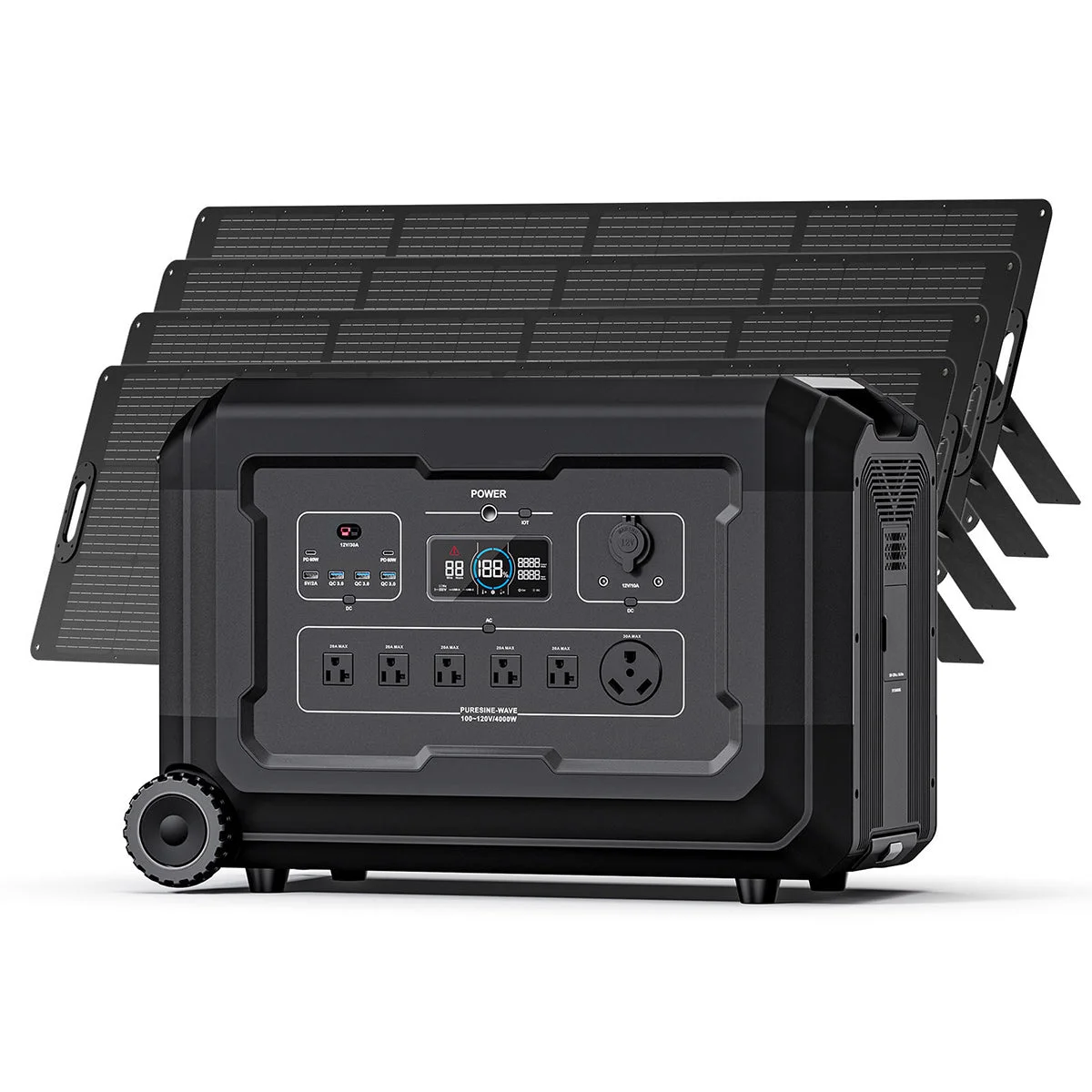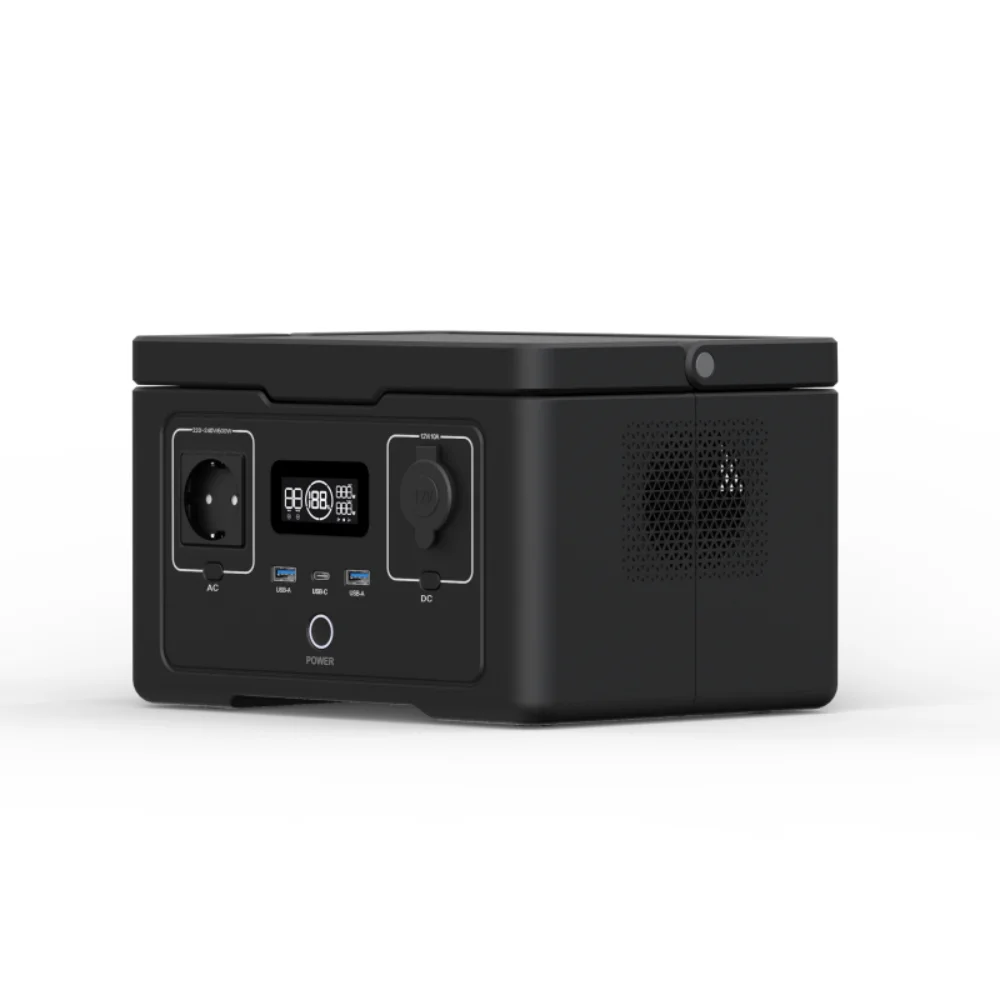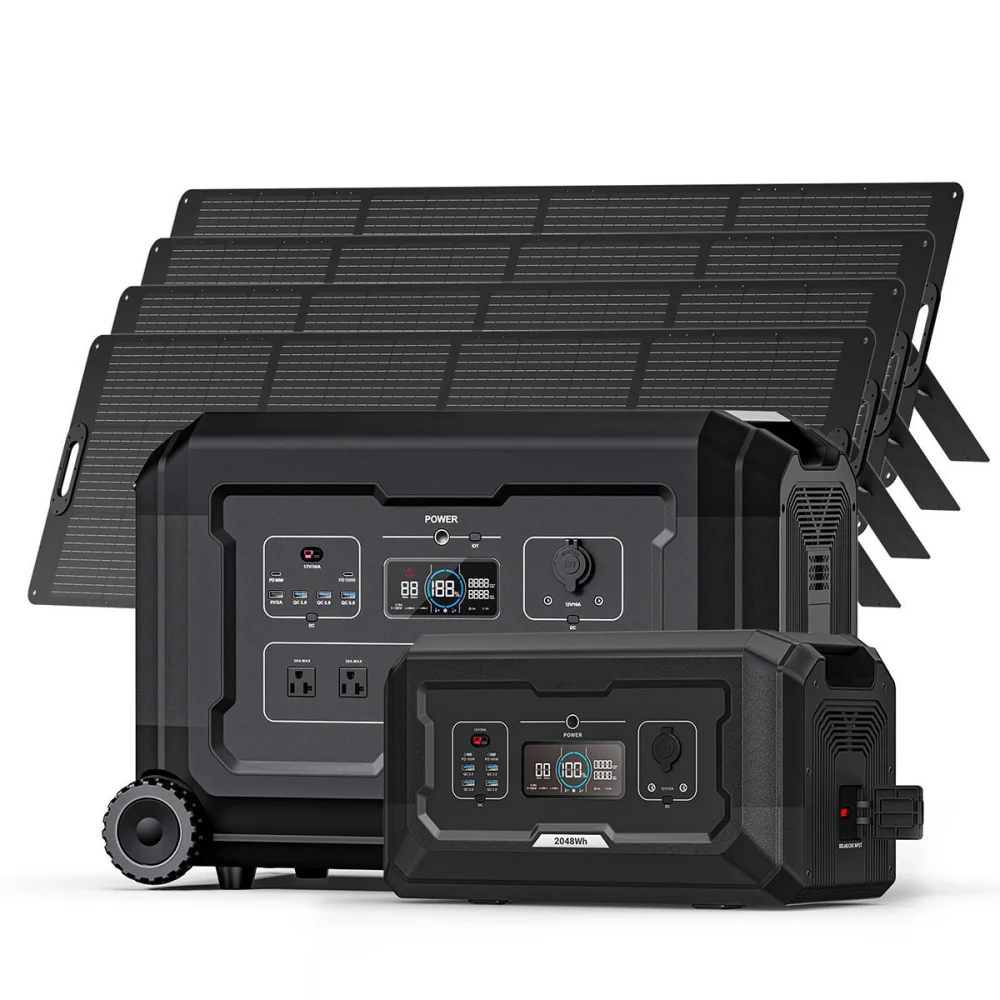Let's talk about the environmental friendliness of solar generator batteries!
Environmental Benefits of Solar Generator Batteries
Reducing Carbon Footprint with Renewable Storage
Solar generator batteries are pivotal in minimizing greenhouse gas emissions by efficiently storing excess solar energy, reducing reliance on fossil fuels. This method of energy storage ensures sustainable energy use by allowing captured solar power to be utilized even when the sun is not shining. A report from the International Renewable Energy Agency (IRENA) supports this, indicating that the adoption of renewable storage systems can lead to a significant reduction in carbon footprints, enhancing sustainability in energy usage. By integrating these systems into homes and businesses, we can contribute to cleaner air and a healthier environment.
Solar Panel Integration for Clean Energy Systems
Integrating solar generator batteries with solar panels creates a seamless clean energy system, fostering energy independence for both homeowners and businesses. This synergy not only ensures a more reliable energy source but also enhances the efficiency of solar energy systems. Data from the Solar Energy Industries Association (SEIA) shows that combined systems can optimize energy production and improve the efficiency of clean energy outputs by 30-40%. This increased efficiency means less waste and more sustainable use of solar energy, paving the way for a greener future that is less dependent on conventional power sources.
Key Challenges in Solar Battery Sustainability
Material Use in Lithium-Ion Batteries
The use of lithium-ion batteries in solar generators presents significant sustainability challenges. One of the main issues stems from the extraction and processing of raw materials such as lithium, cobalt, and nickel. These processes can have severe environmental repercussions. According to the Global Battery Alliance, sourcing lithium alone contributes to about 50% of the environmental impacts associated with battery production. This raises sustainability concerns, as the demand for these batteries continues to rise with the growing reliance on solar energy systems. Addressing these challenges is crucial for improving the overall sustainability of solar battery technology.
Recycling and End-of-Life Management
The end-of-life management of solar generator batteries is another critical sustainability challenge. Improper disposal of these batteries can lead to hazardous waste and environmental degradation. The Environmental Protection Agency (EPA) reports that currently, only a small percentage — approximately 5% — of lithium-ion batteries are recycled. This highlights a significant gap in effective recycling methods and programs. To foster sustainable energy systems, it is imperative to prioritize the development of improved recycling processes and initiatives. These efforts can ensure more eco-friendly handling of batteries at the end of their lifecycle, minimizing their environmental impact.
Lifecycle Analysis of Solar Energy Storage
Energy Payback Period for Solar Batteries
The energy payback period is a crucial metric that helps evaluate the sustainability of solar energy systems. It indicates the time required for a solar battery to generate an amount of energy equivalent to that which was used during its production. This is vital for assessing the overall efficiency and sustainability of solar energy storage systems. According to the National Renewable Energy Laboratory (NREL), modern solar batteries typically have energy payback periods of one to four years, depending on the technology used. This relatively short payback period enhances the appeal of solar energy solutions, making them a viable option for those looking to reduce their environmental footprint.
Long-Term Environmental ROI
Evaluating the long-term environmental return on investment (ROI) is essential for understanding the broader benefits of solar battery systems throughout their lifecycle. Studies suggest that the environmental advantages of solar generator batteries can outweigh their disadvantages by up to five times over a 20-year lifespan. This demonstrates the significant value they offer in terms of sustainability. By harnessing solar energy—a renewable and abundant resource—solar battery systems not only provide clean energy but also contribute to reducing reliance on fossil fuels and minimizing carbon emissions. This highlights their pivotal role in promoting sustainable energy solutions and underscores the importance of incorporating solar technology in both residential and commercial applications.
Leading Solar Generator Battery Solutions
5000W Emergency All-in-One Camping Solar Generator
The 5000W Emergency All-in-One Camping Solar Generator is engineered for outdoor enthusiasts seeking dependable power solutions in emergencies. Its lightweight and portable design make it ideal for camping trips or family preparedness strategies. The generator integrates solar charging capabilities, allowing users to connect solar panels to maximize its energy efficiency without depending on grid power. This eco-friendly power source is perfect for those committed to sustainable living and reducing reliance on traditional energy sources.
600W Portable LiFePO4 Battery Generator
Leveraging advanced LiFePO4 technology, the 600W Portable LiFePO4 Battery Generator offers a stable and long-lasting energy solution that makes it suitable for recreational uses or as a backup during power outages. Its robust safety profile includes features that minimize fire risks, ensuring a reliable and secure option for families and adventurers alike. This generator stands out as an excellent portable energy solution thanks to its safe and efficient energy storage compatibility.
3600W Outdoor Mobile Power Station
The 3600W Outdoor Mobile Power Station is designed with versatility in mind, capable of simultaneously powering multiple devices. It is a perfect solution for outdoor recreational activities or emergency scenarios, providing the necessary power for appliances and solar panel charging. The multi-functional capacity highlights its role as a comprehensive outdoor energy solution, whereby users can enjoy seamless power supply without compromising efficiency.
Advancing Sustainable Energy Systems
Innovations in Solar Energy Storage
Innovations in solar energy storage are setting new standards in efficiency and integration, paving the way for more sustainable energy systems homes. Smart batteries and battery management systems are at the forefront, elevating storage efficiency and responsiveness. For example, these advanced systems regulate power usage more precisely, ensuring optimal performance and extending battery life. Additionally, grid storage solutions are becoming an integral part of urban energy systems. By enhancing the reliability of renewable energy supply, these innovations are driving greater adoption rates in cities worldwide, supporting the transition to more sustainable, eco-friendly energy solutions.
Best Practices for Eco-Friendly Usage
Implementing best practices in solar usage can significantly extend the lifecycle of batteries and systems, promoting eco-friendly energy utilization. Optimal solar panel placement is crucial for maximizing energy capture; panels should be angled to face the sun’s path throughout the day. Regular battery maintenance, such as cleaning and checking for corrosion, helps maintain efficiency and prolongs battery life. Moreover, educating consumers on proper usage and disposal methods fosters environmental accountability. By encouraging a renewable energy mindset, we empower individuals to embrace sustainable practices and reduce their overall carbon footprint, contributing to a healthier planet.
 EN
EN
 AR
AR FR
FR DE
DE IT
IT PL
PL PT
PT RU
RU ES
ES SW
SW HA
HA



